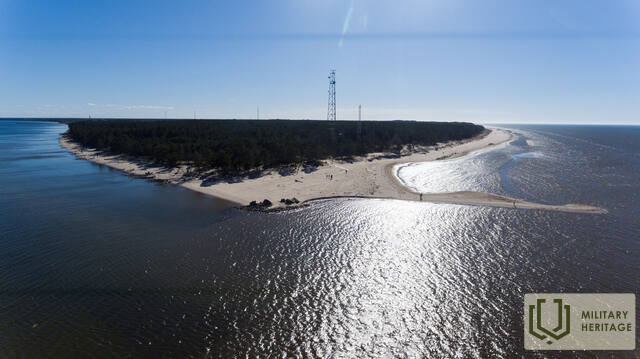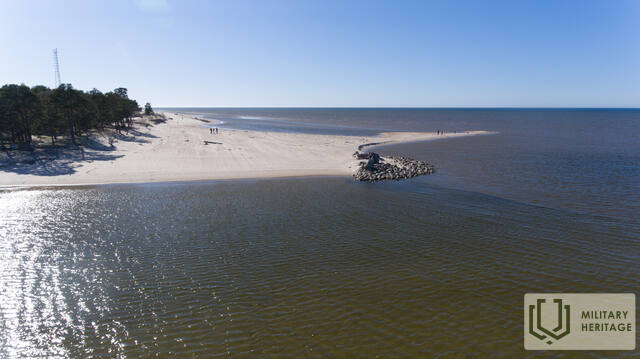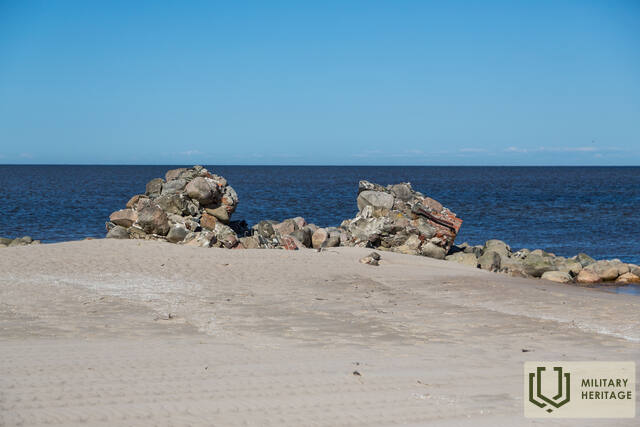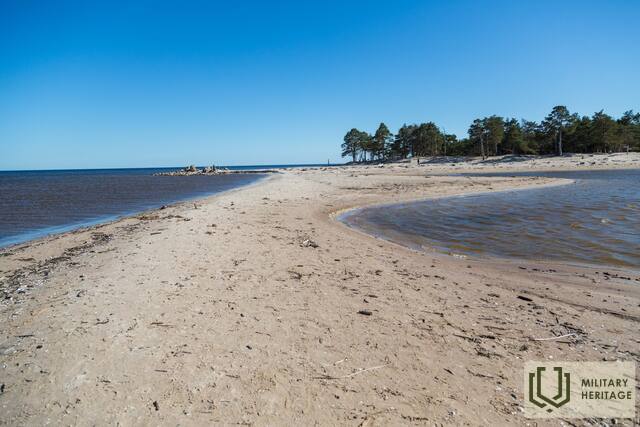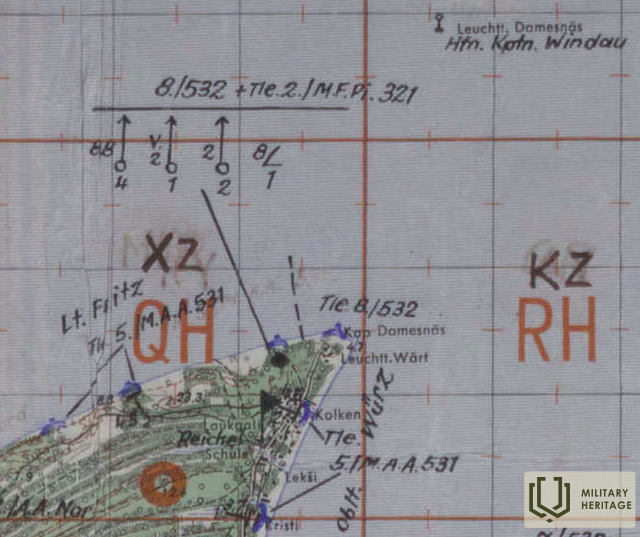Vokietijos armijos pakrančių apsaugos prožektorių aikštelė Ūsyje ir pasienio apsaugos postas Kolkoje
Infrastruktūra

Kolkos kyšulyje nebuvo planuojama jokios karinės infrastruktūros, išskyrus kelis jūrinius švyturius, kurie buvo atstatyti per ilgą laiką – prieš Pirmąjį pasaulinį karą, Pirmojo arba Antrojo pasaulinio karo metu. Siauriausioje Irbės sąsiaurio dalyje, tarp Sirvės pusiasalio ir Mykolo bokšto švyturio, buvo suplanuotos pakrantės gynybos baterijos.
Vieninteliai karinio pobūdžio įtvirtinimai atsirado 1944 m. pabaigoje, kai Vokietijos armijų grupė „Šiaurė“ ruošėsi atremti galimus sovietų Baltijos laivyno išsilaipinimus. 1945 m. pavasarį, ledui atsitraukus, dvi 532-osios artilerijos divizijos baterijos gynė pakrantę ties Kolkos kyšuliu. 7-oji baterija su keturiomis 75 mm patrankomis ir trimis 20 mm zenitinėmis patrankomis. 8-oji baterija su keturiomis 88 mm minosvaidžiais, trimis 20 mm minosvaidžiais ir 81 mm minosvaidžiu. Priešdezertyrinį pėstininkų garnizoną sudarė vienas garsiausių Vokietijos karinio jūrų laivyno pakrantės gynybos dalinių – 531-osios artilerijos divizijos 5-oji kuopa. Nors pavadinimu tai buvo artilerijos dalinys, pagal dislokaciją tai buvo pėstininkų dalinys, kuris savo karą pradėjo 1941 m. birželį prie Liepojos. Tuomet dalinys buvo dislokuotas Suomijos įlankos salose, o vėliau dalyvavo kovose Saremos saloje. Divizijos likučiai buvo pertvarkyti į vieną kuopą ir, sustiprinti septyniais prieštankiniais ir trimis 20 mm priešlėktuviniais pabūklais, dislokuoti Kolkos kyšulyje.
Sovietų jūrų desanto operacija niekada neįvyko, o vokiečių daliniai kapituliavo 1945 m. gegužę.
Karinė infrastruktūra Kolkos kyšulyje pradėta kurti po Antrojo pasaulinio karo, kai čia buvo dislokuoti sovietų pasienio apsaugos postai ir Kolka, kaip ir visa Kuržemės pakrantė nuo Mērsrago iki Lietuvos sienos, tapo uždara zona.
Susijusi laiko juosta
Susijusios temos
Susijusi istorija
Vokiečių armijos radiolokacinis postas Ulmalyje
Vokietijos ginkluotosios pajėgos keliose vietose dislokavo radiolokacines stotis, o tai leido daug anksčiau nustatyti priešo aviacijos veiklą Kuržemės srityje.
Kuržemės pakrantė – uždara zona
Šaltojo karo metais visa Kuržemės pakrantė buvo uždara visuomenei zona – čia daugiausiai sprendė sovietų pasieniečiai, tam tikrais atstumais įrengę apsaugos postus, o paplūdimyje – apžvalgos bokštus su prožektoriais. Civiliai į pajūrį įleidžiami tik šviesiu paros metu.
Kolkos pakrančių apsaugos apžvalgos bokštas
Paskutinėse Kolkos rago pušyse pasislėpęs pasieniečių bokštas, kuriame sovietmečiu nuolat buvo pasieniečių postas, o šalia esantis nedidelis mūrinis pastatas dabar apleistas ir griūvantis.
Apie Kolkos pakrantės pasieniečius
Kolkiškietės Valijos Laukšteinės prisiminimai apie laikus Kolkoje, kai buvo pasieniečiai.




